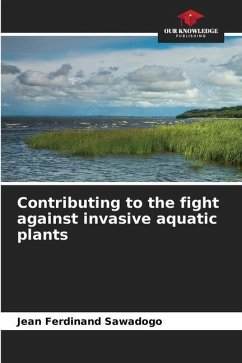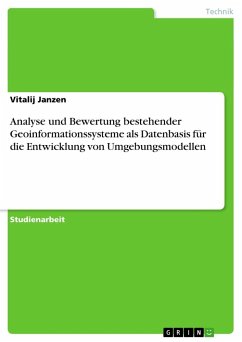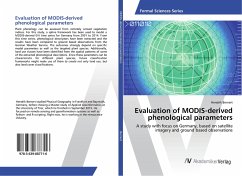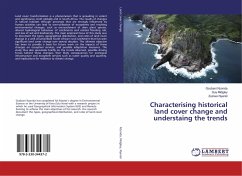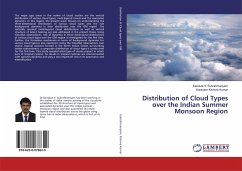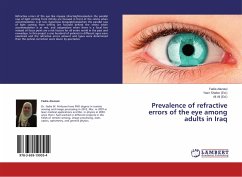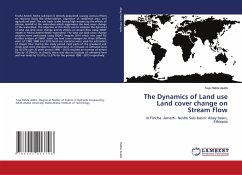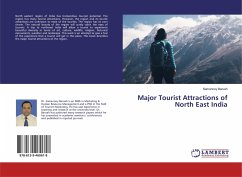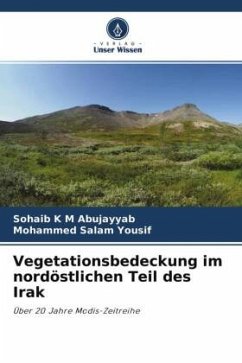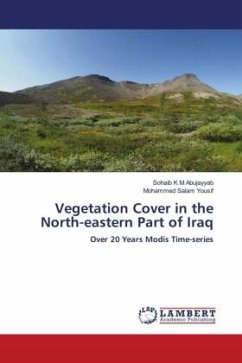
Vegetation Cover in the North-eastern Part of Iraq
Over 20 Years Modis Time-series
Versandkostenfrei!
Versandfertig in 6-10 Tagen
40,99 €
inkl. MwSt.

PAYBACK Punkte
20 °P sammeln!
Vegetation cover has a significant impact on human life and the preservation of the ecological balance. This analysis aimed to reveal the changes in the vegetation time series in the North-eastern governorates of Iraq during the time period from 2000 to 2020. The results showed that the year 2019 recorded the highest density of vegetation cover in the time period and for all study regions, while the NDVI values were 0.29 for Sulaymaniyah, 0.30 for Kirkuk, 0.24 for Diyala and 0.22 for Wasit. The lowest values of NDVI were recorded for the regions of Sulaymaniyah and Kirkuk in 2008, where the ra...
Vegetation cover has a significant impact on human life and the preservation of the ecological balance. This analysis aimed to reveal the changes in the vegetation time series in the North-eastern governorates of Iraq during the time period from 2000 to 2020. The results showed that the year 2019 recorded the highest density of vegetation cover in the time period and for all study regions, while the NDVI values were 0.29 for Sulaymaniyah, 0.30 for Kirkuk, 0.24 for Diyala and 0.22 for Wasit. The lowest values of NDVI were recorded for the regions of Sulaymaniyah and Kirkuk in 2008, where the ratios of NDVI rates were 0.18 for Sulaymaniyah and 0.13 for Kirkuk, while Diyala and Wasit recorded the lowest values in the year 2007, with similar rates of 0.12 for both. There were medium and weak relationships between NDVI vegetation cover indicators and rainfall rates for the study area, where the positive relationship was medium for Sulaymaniyah (0.458), Diyala (0.490) and for Wasit (0.544), while Kirkuk governorate witnessed a weak relationship (0.303). The results showed a strong inverse correlation (-0.75) between vegetation density and elevation in winter.



